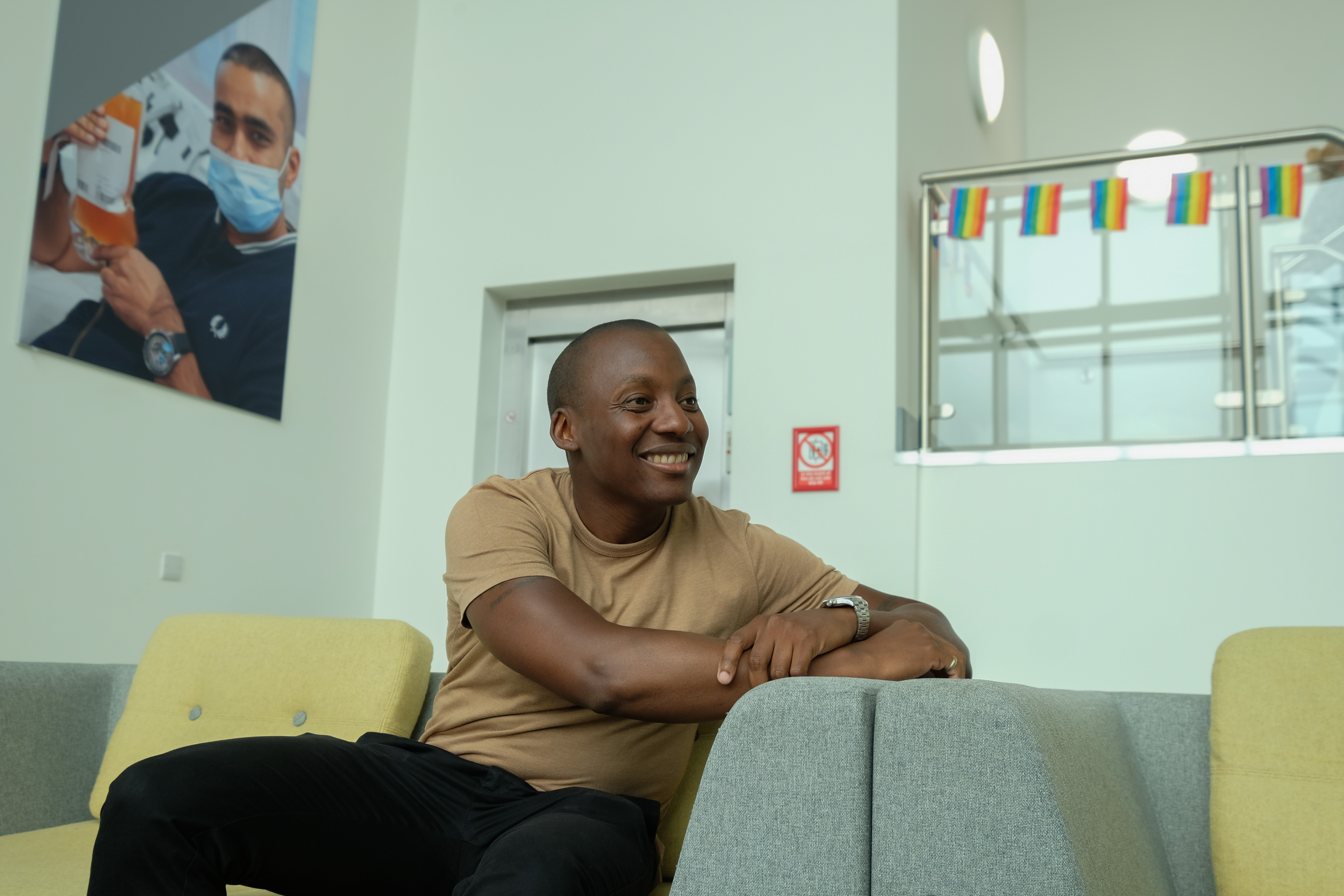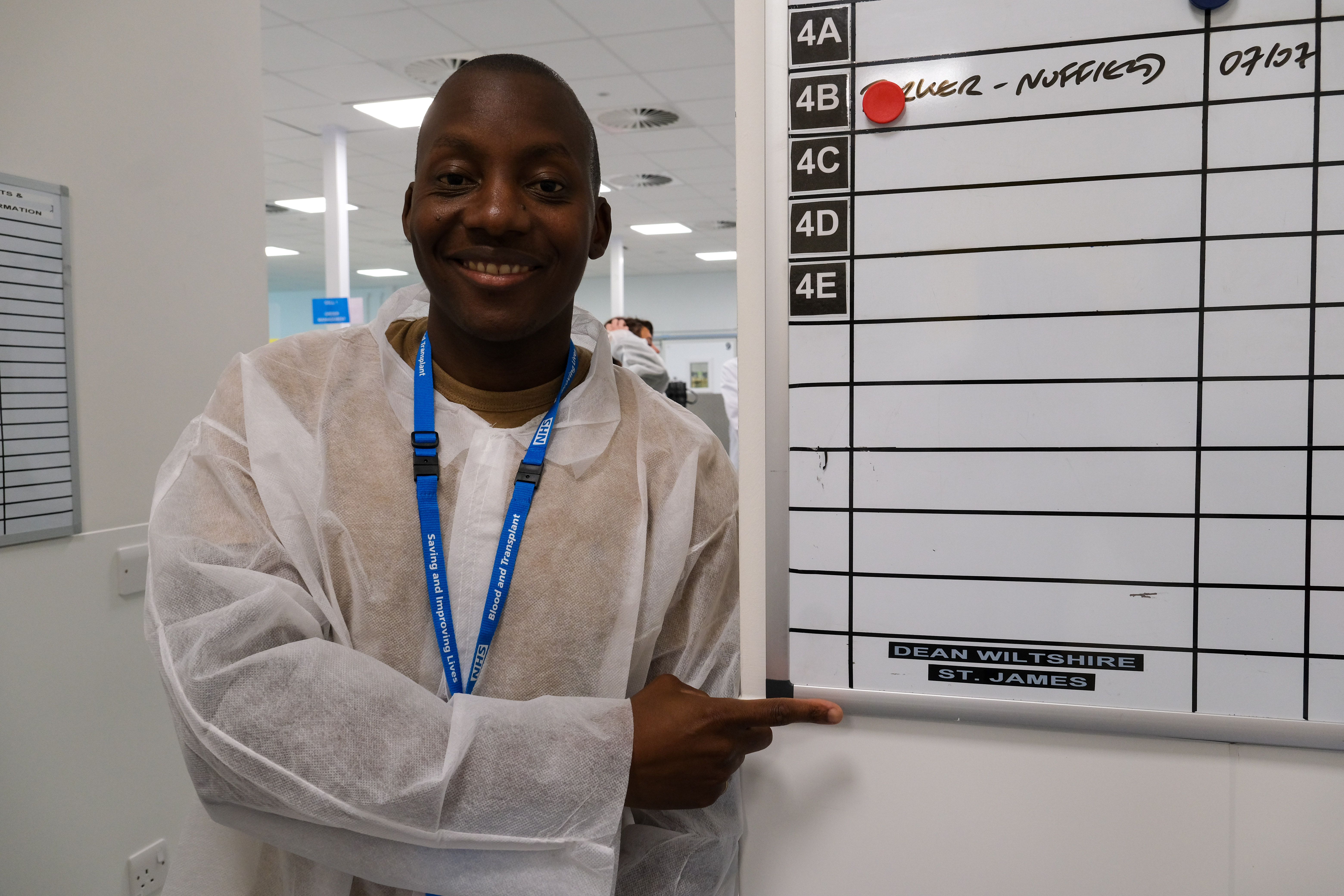New life-saving test for people with sickle cell
In a world-first, thousands of people with sickle cell will now have access to a new genetic test on the NHS that will provide them with better-matched blood transfusions.
The NHS becomes the first healthcare system in the world to offer the blood group genotyping test, set to transform care for almost 18,000 people living with conditions such as sickle cell.
How genotyping helps
Genotyping is an analysis of a person’s DNA. In this case, it is used to determine highly-compatible matches between patients and donors.
A DNA analysis may allow for more accurate matching for people who need transfusions and help to find the best compatible blood.

Ro – a very special blood type
We often think of blood as falling into eight different groups, according to the ABO and Rh systems which give us A positive, B positive, O negative, and so on. There are, however, over 300 known blood groups.
People receiving multiple blood transfusions can develop antibodies against some of these blood groups, causing unwanted reactions. This means that closely matching blood is required to give these patients the best possible treatment.
More than half of the people who receive blood transfusions to treat sickle cell need to be given blood with a subtype called Ro.
This is why donations of Ro subtype blood is so important in treating sickle cell.
What the new test means
To help treat conditions where multiple blood transfusions are required, like sickle cell, some patients may have more of their blood groups tested.
This is a time-consuming and expensive process, mostly done using commercially-made antibodies. Genotyping has also been used in recent years, although not widely due to its cost and slow technology.
Blood group genotyping will, however, be used in selected patients and donors in England from 2024 onwards, with the new and more advanced method developed by NHS Blood and Transplant, working with an international group of scientists and industry professionals.
What is sickle cell?
Sickle cell is an inherited condition that mainly affects people with a Black African or Black Caribbean background. It is a life-threatening blood disorder that causes red blood cells to be sickle-shaped, meaning they can clump together. This is known as a 'crisis'.
“I would be in excruciating pain and only morphine would help,” says Dean, a 41-year-old dad of three whose sickle cell led to a stroke in 2010.
“The exchange blood transfusions I now receive, replace my sickled cells with normal ones. It feels like a temporary cure.”
A sickle cell crisis can cause extreme pain, tiredness, and other problems like stroke, blindness and organ failure. The pain can last for days or weeks. Dean’s first crisis came as a four-year-old.

Dean currently receives nine units of blood every six weeks, but after developing antibodies to some blood groups, he has occasionally had to be given reduced transfusions as not enough matching blood could be found.
“I’ve been told I’m like a celebrity to the blood matching team, because it’s so hard to find matching blood for me,” he says. “It is a worry that it gets more and more difficult to find blood over time. Without the transfusions, I would get more unwell, with more crises and more complications.”
Blood group genotyping would mean better matched transfusions. More blood could be found for him now. Dean, and thousands of people like him, would also have less chance of developing more antibodies in the future.
